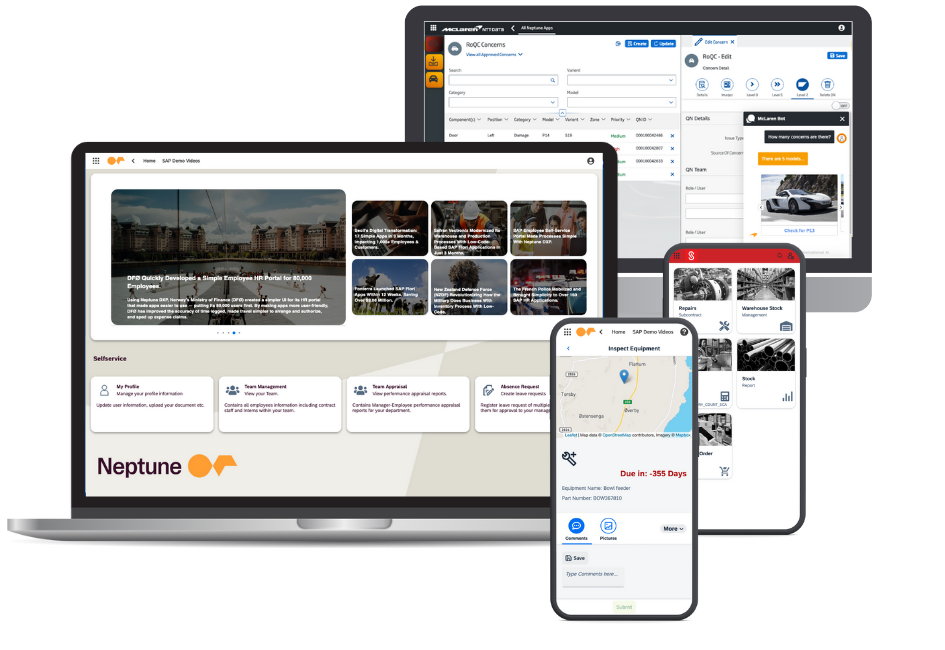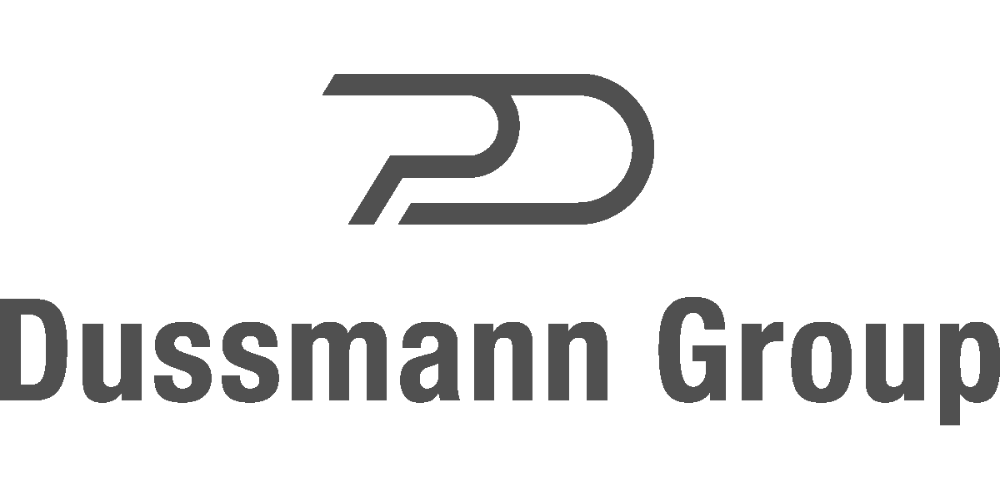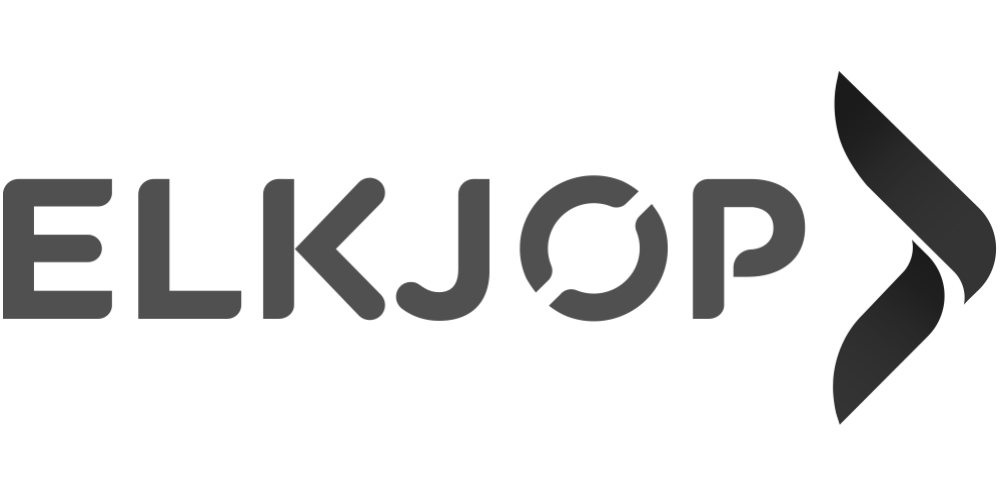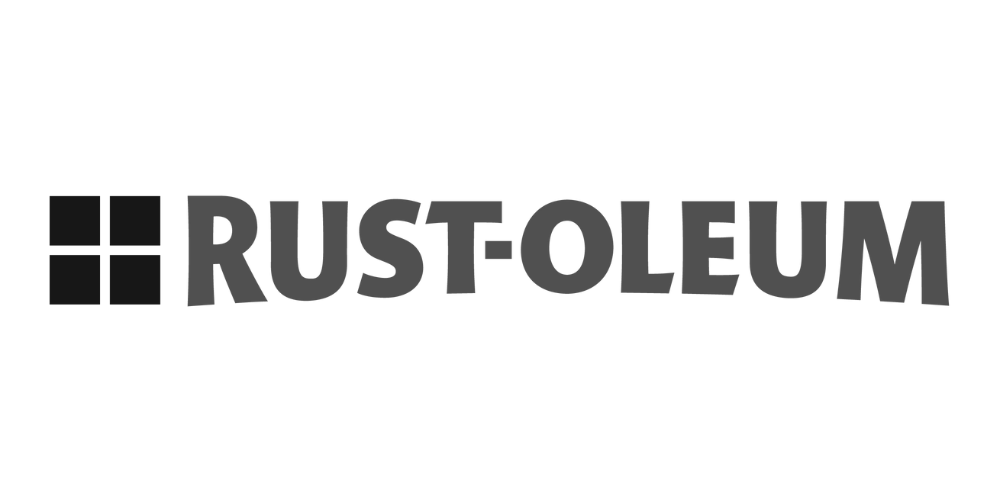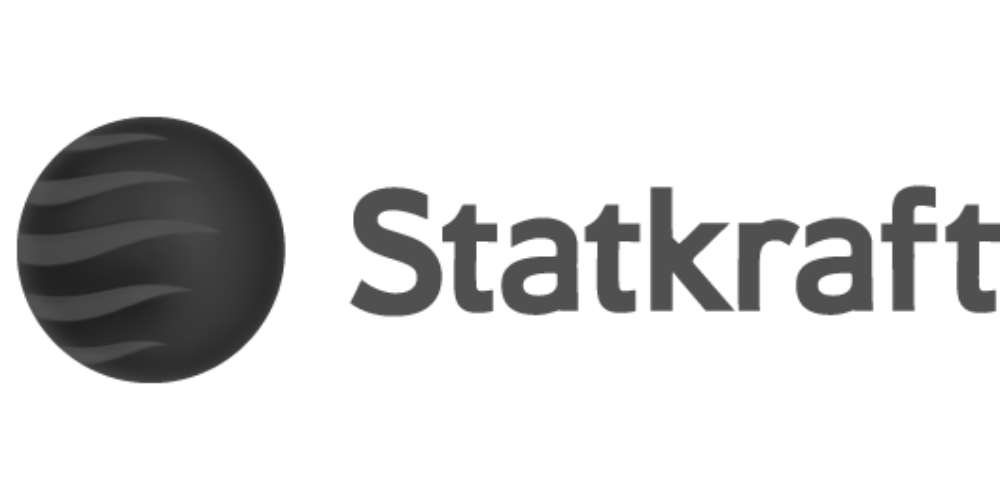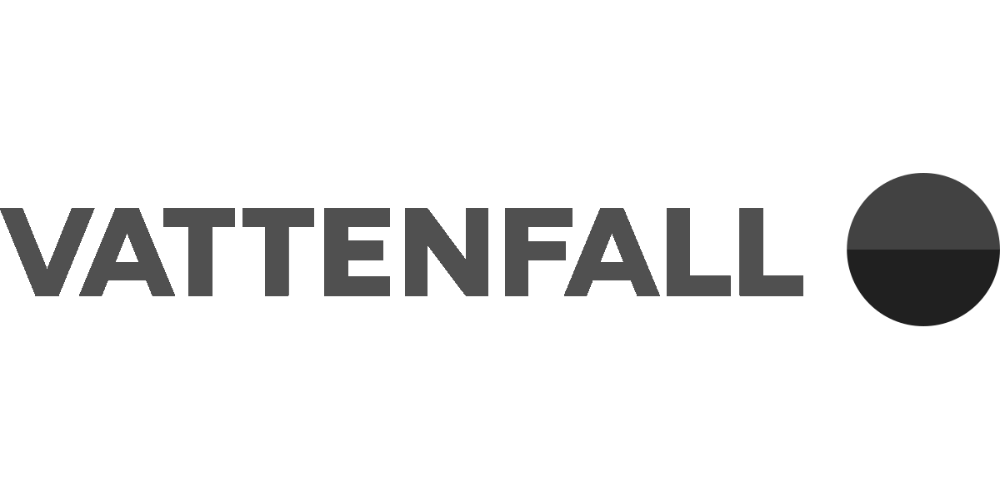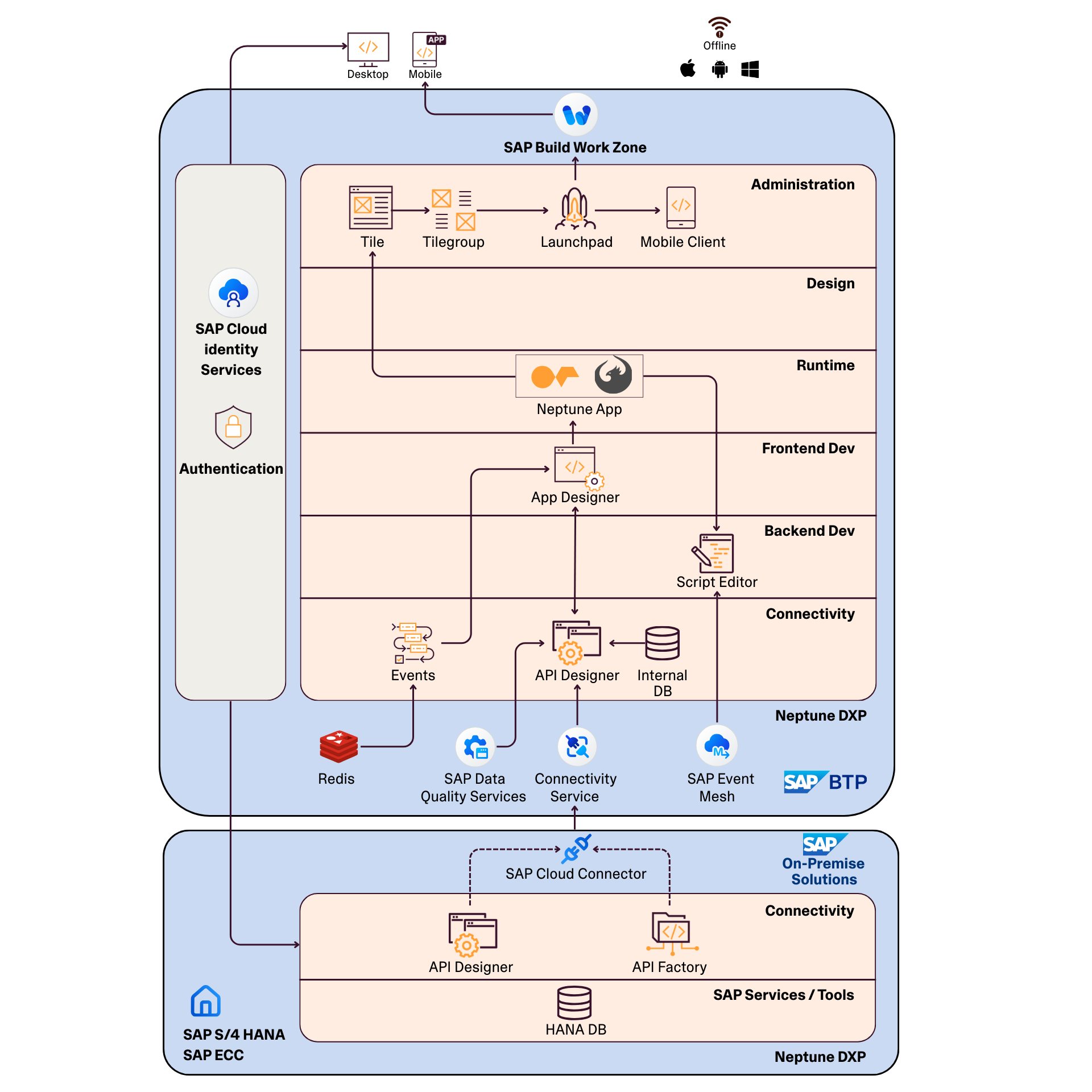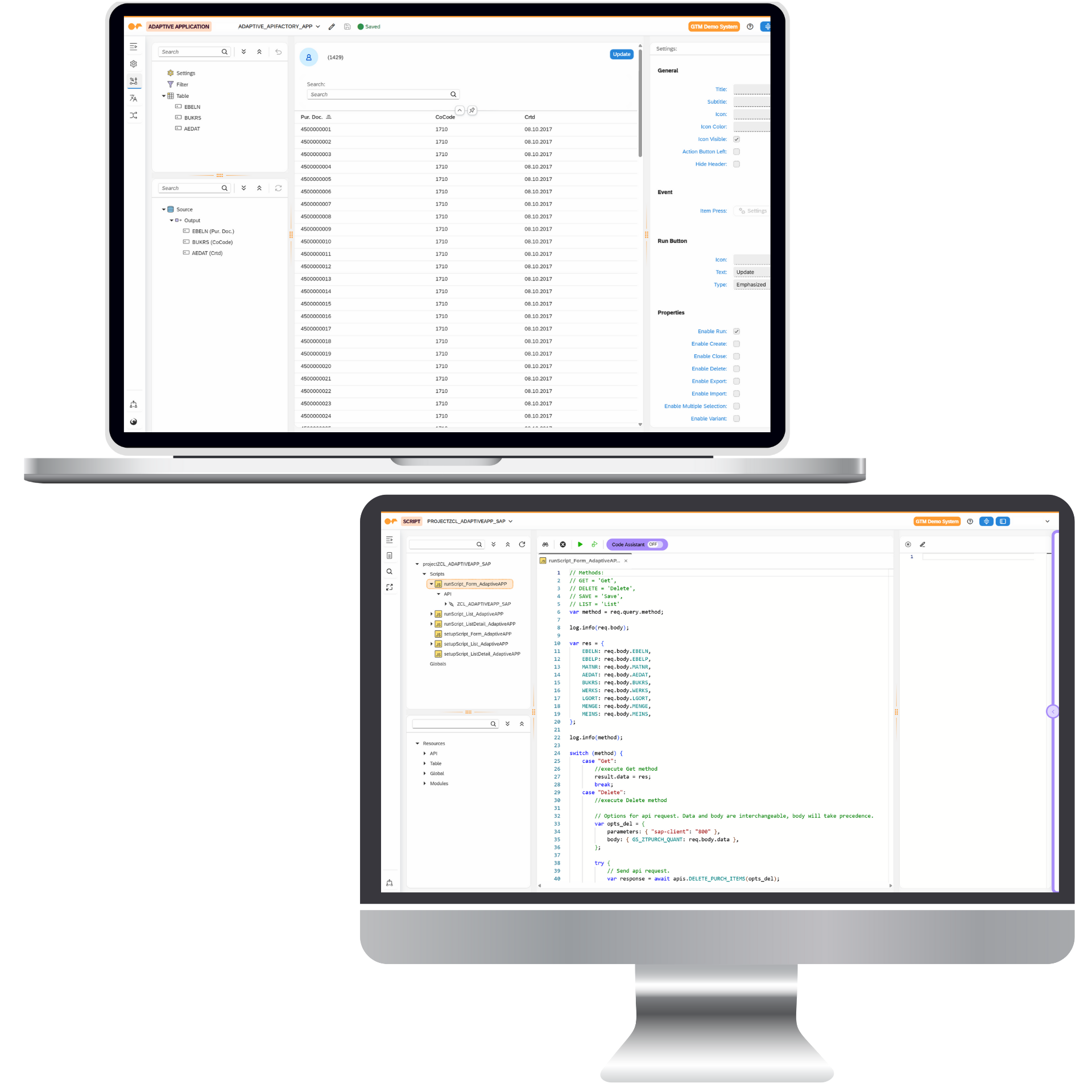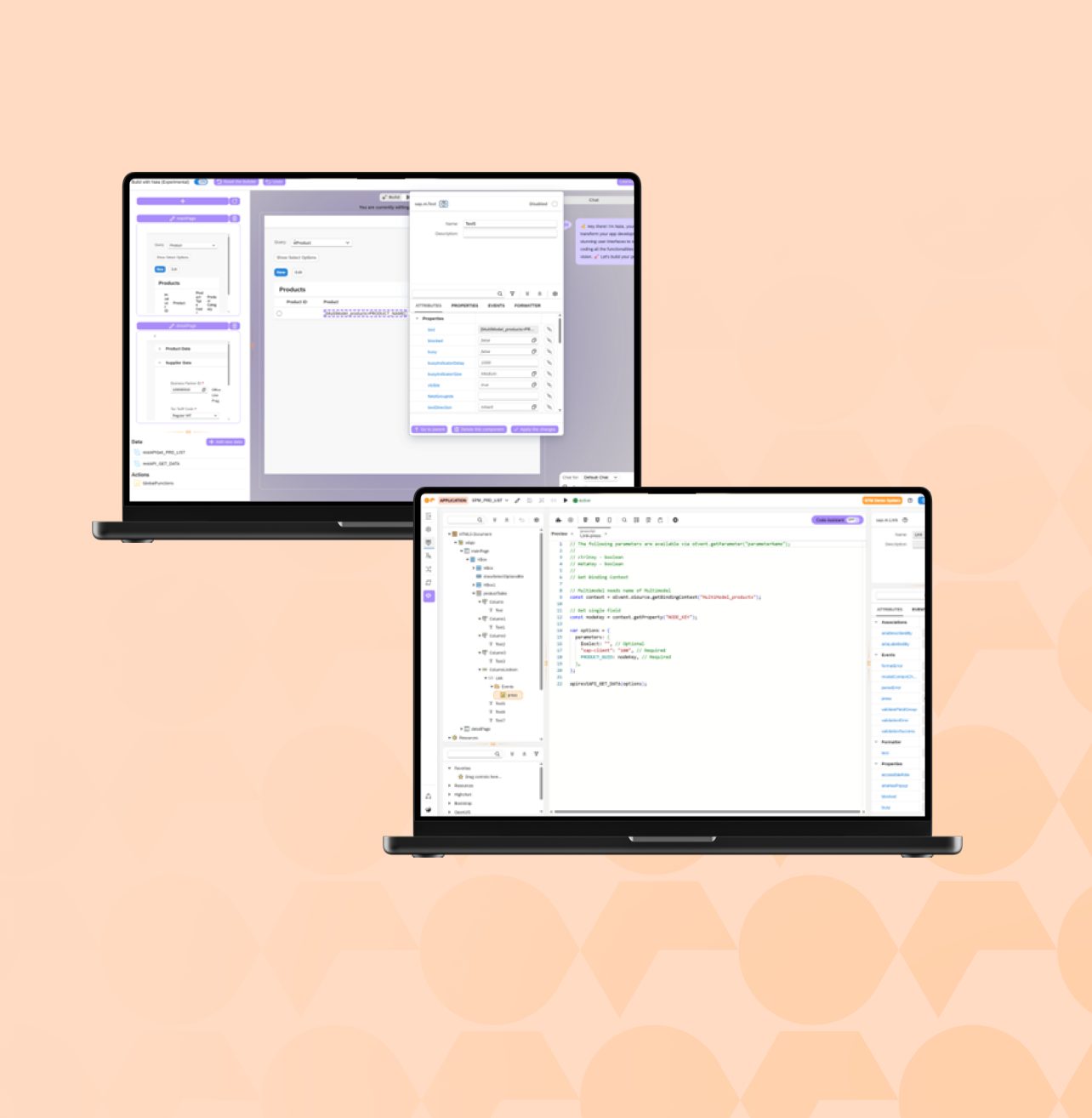
Trusted by Enterprises Simplifying SAP Complexity
The platform for builders
Low-Code That Adapts to Your Team,
Your Stack and Your Strategy.
Our SAP-Native Low-Code Platform brings developers, architects, and business teams into one environment. Build intuitive apps with drag-and-drop or go full-code with SAPUI5 and JavaScript. Reuse your backend logic, control governance, and deliver solutions faster without compromising SAP standards.
Accelerate ROI, Slash Risk.
-
Launch SAP apps 40 % faster and see value in weeks, not months.
-
Keep a clean core—shift from ECC to S/4HANA with zero rewrites, saving millions in upgrade spend.
-
Straightforward licensing—one transparent fee, no per user runtime surprises.
-
Offline ready apps keep the shop floor productive, slashing unplanned downtime by up to 25 %.
€
3.2
M
Saved in Year 1
Fonterra
40
%
Faster App Dev
United Utilities
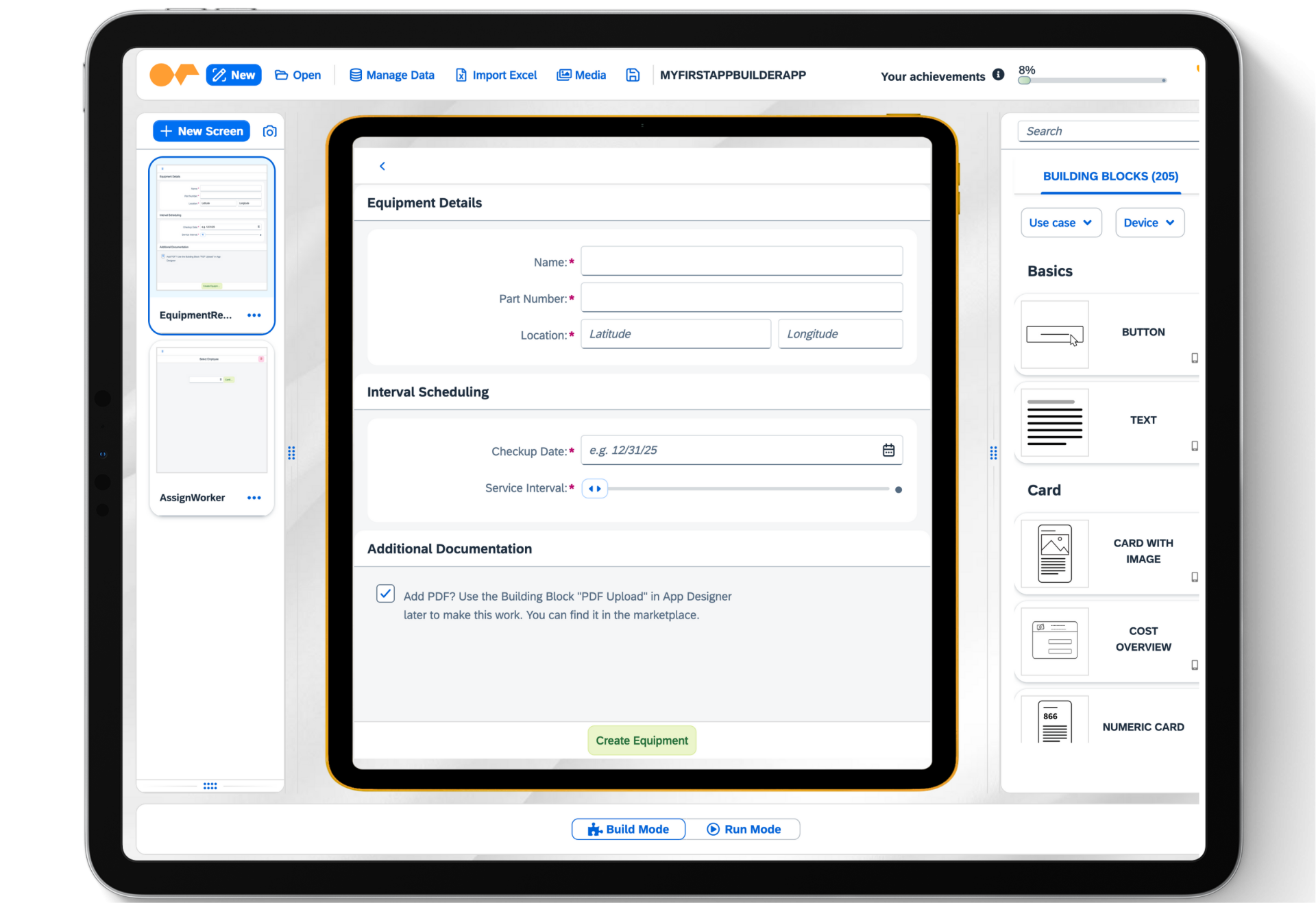
Simplify Innovation, Streamline Execution.
-
Native SAP runtime (ECC, S/4, ABAP Cloud).
-
OpenUI5, SAPUI5, JavaScript, and framework flexibility.
-
Full SAP backend reuse (any ABAP artifacts, BAPIs, OData).
-
Extend SAP processes to any device. Desktop, tablet, or smartphone with full support for mobile capabilities and offline use.
25
%
Less Downtime
Stratkraft
80
%
Less Effort
Forsvaret
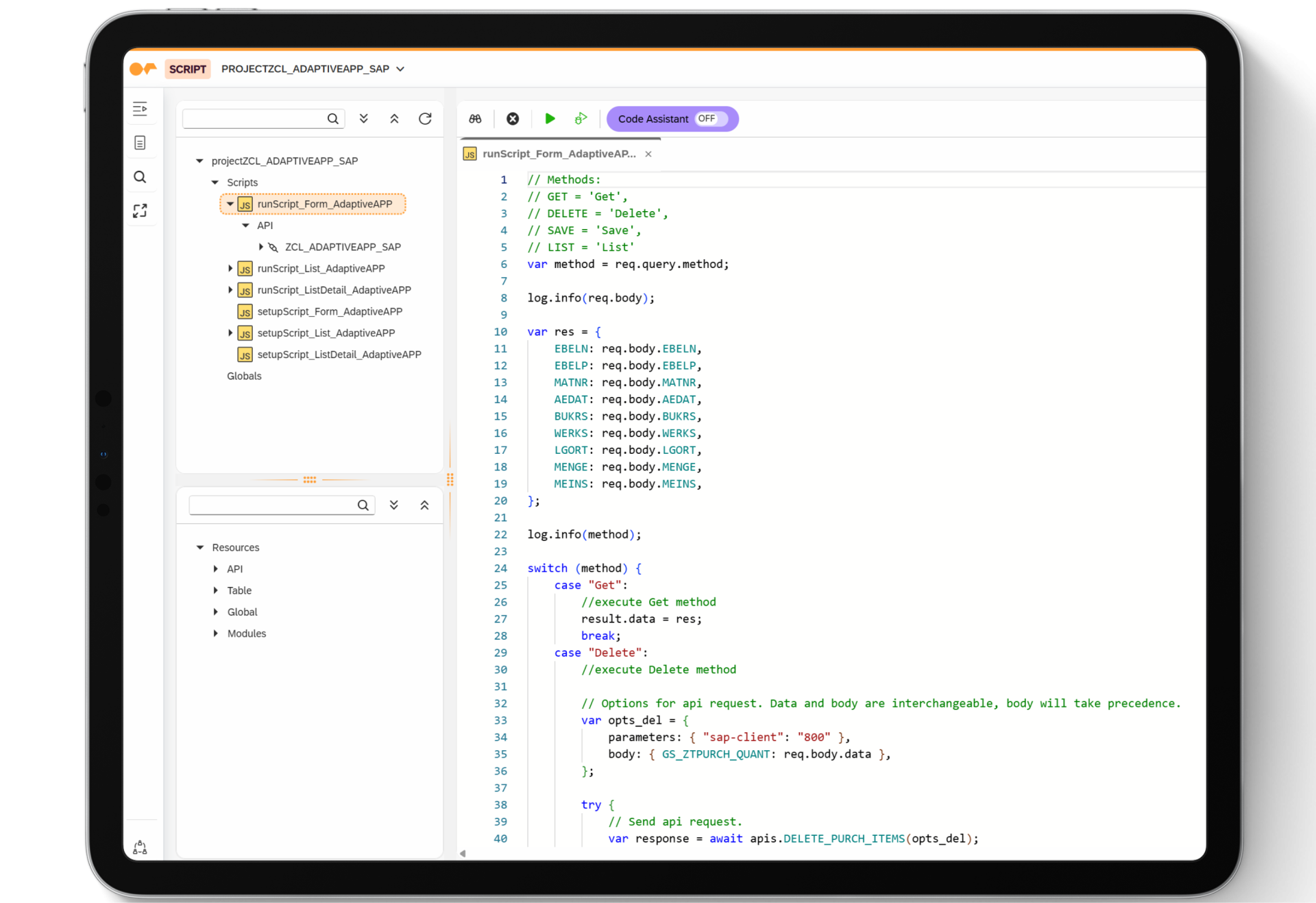
Why enterprises choose Neptune
Build More. Reduce Risk. Deliver Faster.
Evolve
Accelerate Innovation.
Go from concept to deployment in days not months.
Adopt
Protect your Core.
Avoid replatforming and keep ECC or S/4HANA applications stable.
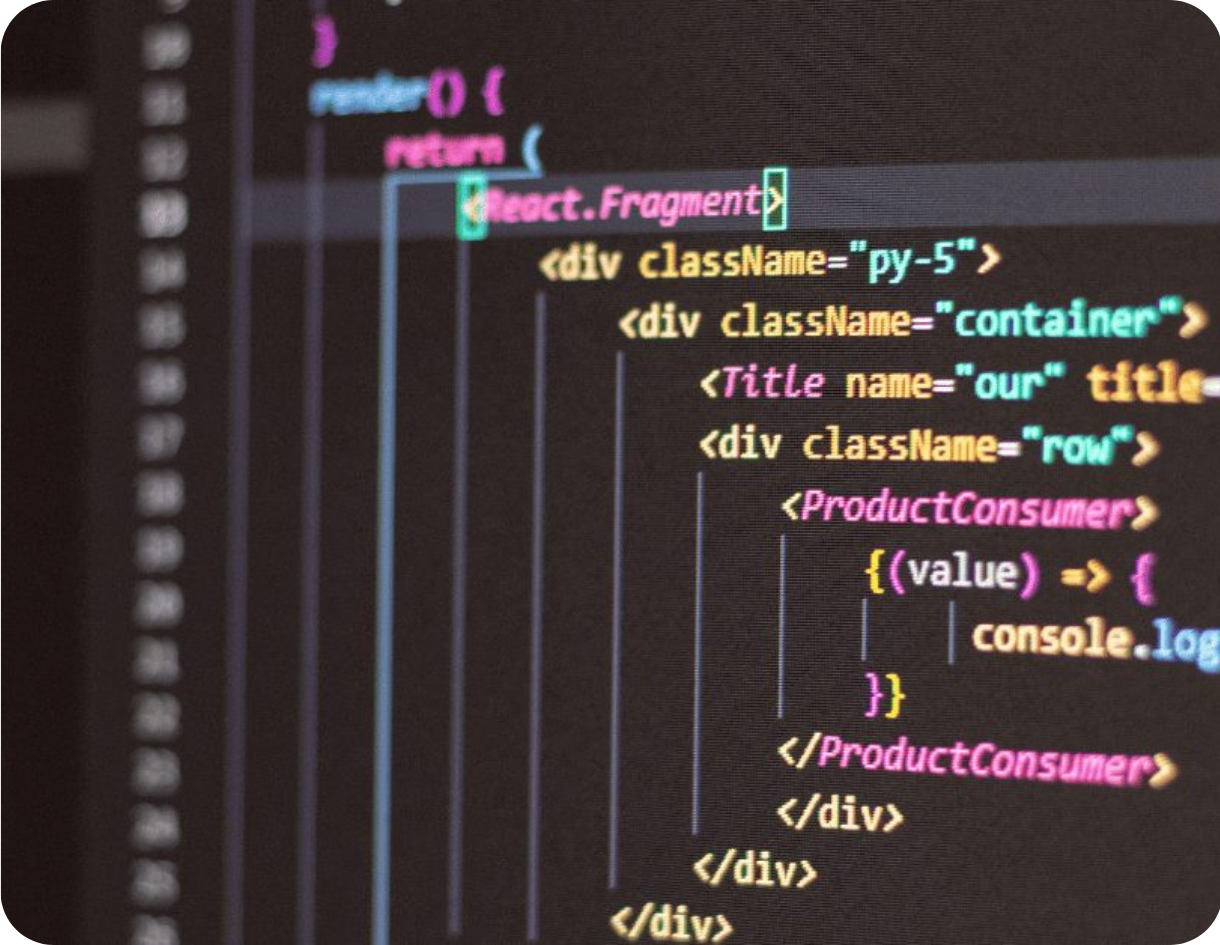
Simplify
Unify your Stack.
Connect SAP and non-SAP systems through one platform with no middleware.

Real SAP Fiori apps created by AI. Governed by Neptune
The World’s First
Prompt-to-Low-Code Experience for SAP Apps.
Real. Secure. Fully Functional.
Describe what you need in plain text, and watch Neptunes AI Assistant “Naia” build a real, enterprise-grade SAP app in minutes. Fully extendable with Neptune’s SAP-native Low-Code tooling.
From SAP extensions to AI-ready orchestration
Neptune DXP: What’s Inside the Platform
We Love Developers
Including the documentation sets for Neptune DXP – SAP Edition, Neptune DXP – Open Edition, Neptune DXP Cloud, Neptune DXP Portal, and the Evaluation Guide.
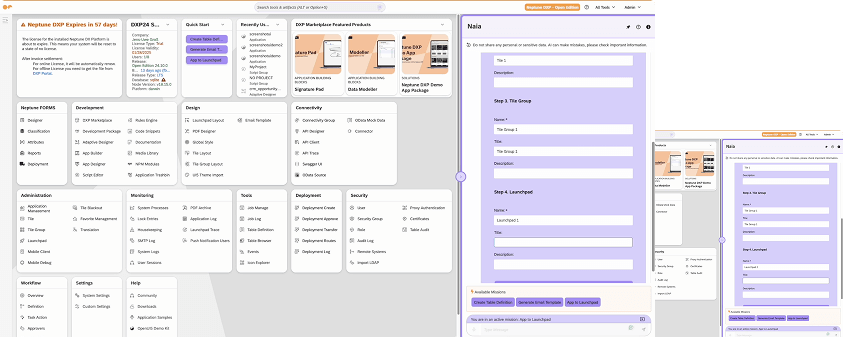
Frequent
Asked Questions
Didn’t find what you need?

